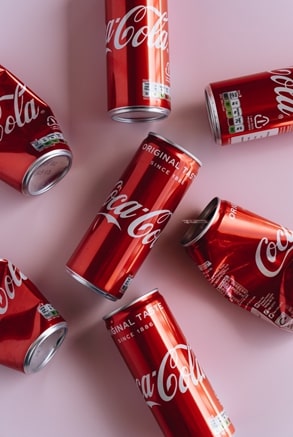
By: Erin Donnelly
For years, Coca-Cola has held the spot as the leading carbonated soft drink (CSD) company in the United States.[1] In 2018, over half of American consumers, aged thirty to forty-nine, reported that they had consumed a Coca-Cola product in the last month.[2] In recent years, however, the CSD giant has been faced with lawsuits alleging that they misled their consumers with a marketing campaign stating that they do not use preservatives or artificial flavors in their soft drinks.[3]
More specifically, the plaintiffs allege that marketing statements such as “no artificial flavors” and “no preservatives added” were misleading given the fact that the beverages contain phosphoric acid.[4] A main factual issue at hand in the case is whether phosphoric acid is considered a preservative, which would tend to make the aforementioned claims misleading.[5] However, phosphoric acid is used for several reasons unrelated to extending the shelf life of a product, including for taste purposes.[6] The labels on the beverages in question list phosphoric acid as an ingredient but do not specify its function.[7]
The litigation has been ongoing for several years, and six cases have been consolidated together in the Ninth Circuit.[8] More recently, multiple plaintiffs have sought class certification.[9] Coca-Cola has objected to the class certification, likely because the possibility of a higher damages award substantially increases when a class is certified.[10] The plaintiffs allege that they should be certified as a class, since there are common issues in each of their cases against the same defendant, Coca-Cola.[11]
In February 2020, partial class certification was granted to the plaintiffs; later, Coca-Cola’s petition for review of the certification decision was granted under Federal Rule of Civil Procedure 23.[12] Coca-Cola alleges that the plaintiffs lack standing in the case and, thus, should not have been certified as a class.[13] In support of this, Coca-Cola has argued that since its beverages have contained phosphoric acid for over one hundred years, any injury alleged by the plaintiffs is merely speculative.[14] They argue that the plaintiff-consumers are not at risk of future deception because they are already aware of the presence of phosphoric acid in the beverages.[15] Additionally, Coca-Cola pointed to survey results which showed that ninety-five to ninety-eight percent of its consumers “do not care” about the presence of phosphoric acid.[16]
The Ninth Circuit has yet to review the class certification. The court will likely affirm their earlier decision to certify the class and find that the plaintiffs have standing in the case. This is the likely result due to the precedent case of Davidson v. Kimberly-Clark, in which a California federal district court held that consumers may have standing to bring false labeling claims despite the fact that it is unlikely that the representation will mislead them in the future. [17]
The soft drink market is huge in the United States – revenue is projected to reach over $72 billion this year.[18] If the plaintiffs in this case can proceed as a class action and they are subsequently successful in their case against Coca-Cola, there will potentially be quite an effect on the company’s advertising practices and even the soft drink industry as a whole.
[1] Jan Conway, Leading U.S. CSD Companies 2019, Based on Volume Share, Statista (Nov. 26, 2020), https://www.statista.com/statistics/225504/leading-carbonated-soft-drink-companies-in-the-us/#:~:text=In%202019%2C%20Coca%2DCola%20was,of%2024.1%20percent%20that%20year.
[2] Id.
[3] Engurasoff v. Coca-Cola Co., No. C 13-03990 JSW, 2014 WL 4145409, at *1 (N.D. Cal. Aug. 21, 2014).
[4] Christina Davis, Coca-Cola Drinkers Seek Class Cert. in Artificial Ingredients Class Action, Top Class Actions (June 20, 2017), https://topclassactions.com/lawsuit-settlements/lawsuit-news/747455-coca-cola-drinkers-seek-class-cert-artificial-ingredients-class-action/.
[5] Josh Long, Phosphoric Acid at Heart of Class Action Litigation against Coca-Cola, Food & Beverage Insider (Apr. 1, 2020), https://www.foodbeverageinsider.com/beverages/phosphoric-acid-heart-class-action-litigation-against-coca-cola.
[6] Id.
[7] Julie Steinberg, Coca Cola Consumers Say Class Status Proper in Labeling Dispute, Bloomberg Law (Oct. 1, 2020), https://news.bloomberglaw.com/product-liability-and-toxics-law/cola-cola-consumers-say-class-status-proper-in-labeling-dispute?context=search&index=2.
[8] Long, supra note 5.
[9] Davis, supra note 4.
[10] Long, supra note 5.
[11] Davis, supra note 4.
[12] Steven Cohen, Coca-Cola ‘No Artificial Flavors’ Lawsuit Gets Partial Class Cert., Top Class Actions (Feb. 18, 2020), https://topclassactions.com/lawsuit-settlements/lawsuit-news/consumer-products/beverages/coca-cola-no-artificial-flavors-lawsuit-gets-partial-class-cert; Julie Steinberg, Coca Cola Consumers Say Class Status Proper in Labeling Dispute, Bloomberg Law (Oct. 1, 2020), https://news.bloomberglaw.com/product-liability-and-toxics-law/cola-cola-consumers-say-class-status-proper-in-labeling-dispute?context=search&index=2; Fed. R. Civ. P. 23(f) (allowing for a court of appeals to permit an appeal from an order granting class action certification).
[13] Sahar Nicolette, Coca-Cola Fights to Have ‘No Artificial Flavors’ Class Action Thrown Out, Top Class Actions (Feb. 16, 2020), https://topclassactions.com/lawsuit-settlements/consumer-products/beverages/1009627-coca-cola-class-action-no-artificial-flavors-misleading-public/.
[14] Dorothy Atkins, Coca-Cola Fights to Decertify False Ad Class at 9th Circ., Law 360 (Feb. 12, 2021), https://www-law360-com.proxywcl.wrlc.org/articles/1355069/coca-cola-fights-to-decertify-false-ad-class-at-9th-circ-.
[15] Id.
[16] Id.
[17] Id.; Davidson v. Kimberly-Clark Corp., 2014 U.S. Dist. LEXIS 110055 (N.D. Cal. 2014).
[18] Soft Drinks, Statista, https://www.statista.com/outlook/20020000/100/soft-drinks/worldwide#market-revenue (last visited Feb. 16, 2021).

